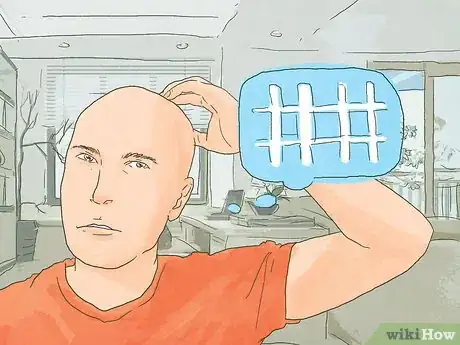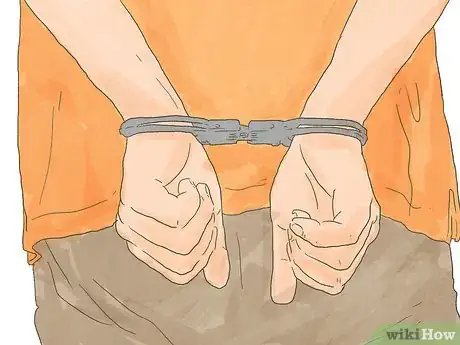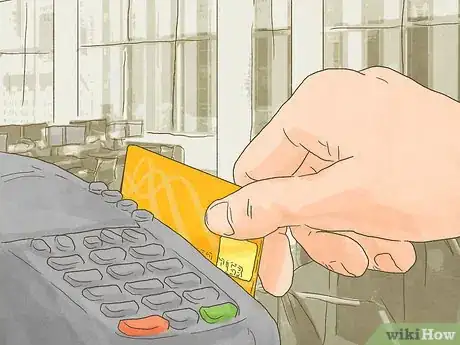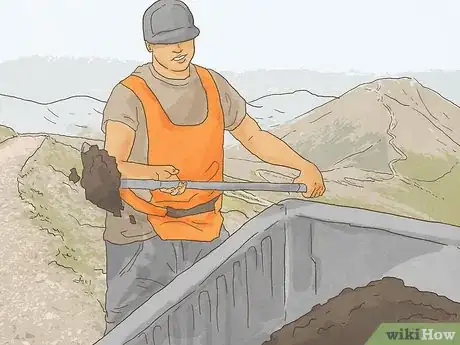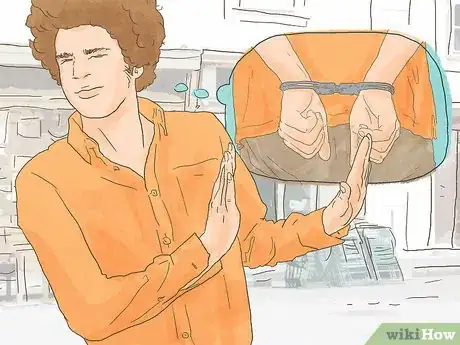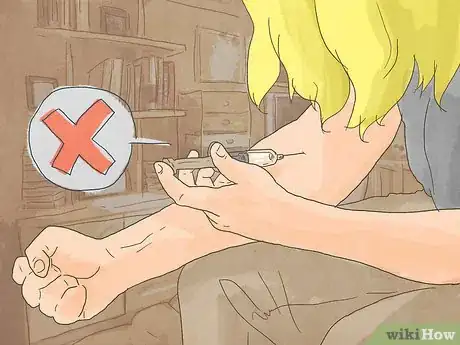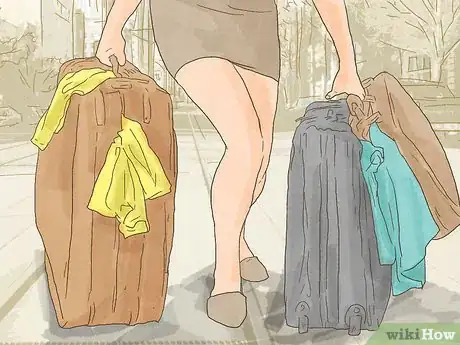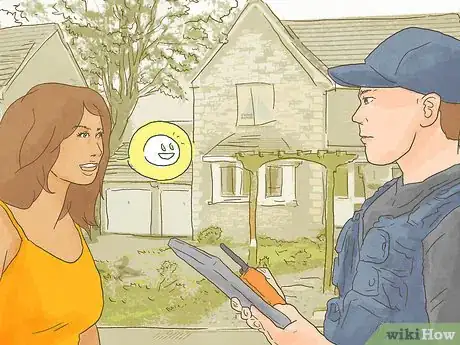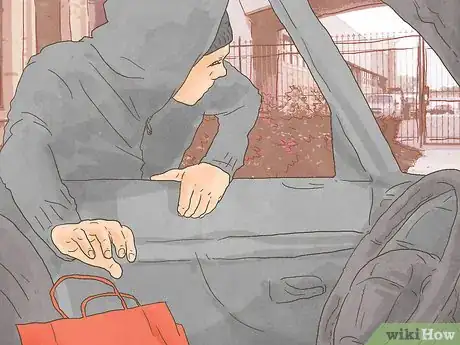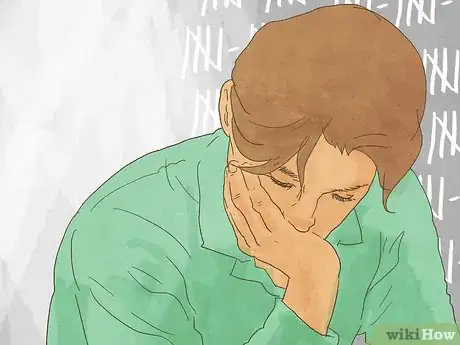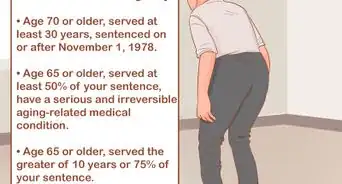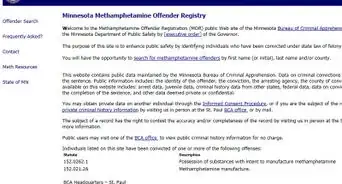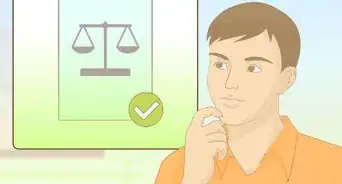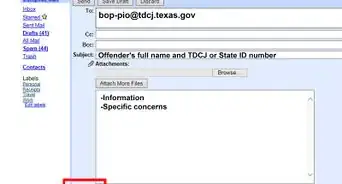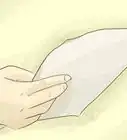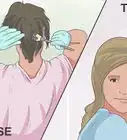This article was co-authored by Clinton M. Sandvick, JD, PhD. Clinton M. Sandvick worked as a civil litigator in California for over 7 years. He received his JD from the University of Wisconsin-Madison in 1998 and his PhD in American History from the University of Oregon in 2013.
This article has been viewed 28,419 times.
The only way to complete probation is to follow the rules and comply with all requirements of your criminal sentence. When you are placed on probation, you are being given a chance to remain in society, under the supervision of the court, rather than be incarcerated. You will have to comply with the terms and conditions set by your probation officer. Your terms and conditions of probation may vary greatly, depending on the type of crime you committed and the state and county in which you were convicted of the crime. If you fail to comply with these conditions, then you risk being incarcerated, often for a lengthy period of time.
Steps
Understanding the Terms and Condition of Your Probation
-
1Read your probation conditions. Your probation officer will provide you with a written summary of your probation conditions, which you will need to read and sign. If you have questions, now is the time to ask. Don’t sign the conditions if there is something that you are unsure about or don’t understand. Be clear about your responsibilities under these conditions.[1]
-
2Understand what type of probation you have been given. Different states may refer to the types of probation differently, but the general categories are usually similar. Some probation requires very close supervision by a probation officer, but other types of probation simply require you to stay out of further legal trouble.
- Supervised probation requires that you remain under the supervision of a probation officer, who makes sure that you comply with a list of terms and conditions.
- Unsupervised probation requires only that you stay out of trouble, pay any fines or restitution that is ordered, and perhaps attend court-ordered counseling or an alcohol awareness class. If you complete these simple requirements, you are released from probation after its term has expired.
- Intensive probation may require a higher level of supervision and some sort of intensive inpatient or outpatient treatment, depending on your circumstances.
Advertisement -
3Know what to do to comply with your probation. Your probation conditions typically require you to meet with your probation officer fairly quickly following your sentencing for the crime that you have committed. Appear promptly for that appointment and start taking the steps necessary to comply with your probation conditions.[2]
-
4Understand the consequences of failing to comply with your probation conditions. If you violate the terms and conditions of your probation, your probation officer has the authority to file a probation revocation. This type of motion details how you have violated the conditions of your probation asks the court to issue a warrant for your arrest and place you in jail.[3]
- When you are placed on probation, you are given a jail sentence that is suspended, meaning that you do not have to serve it. The jail sentence is suspended on the condition that you comply with your probation conditions. If you violate your probation conditions, you likely will have to serve some or all of the suspended portion of your sentence. This means that you will be incarcerated, most likely with no bond, and may even be sent to prison.
- Your probation officer and the prosecutor handling your case will be asked to make a recommendation to the court about how much of your suspended jail sentence you should serve as a result of having violated your probation.
- Ultimately, the judge will decide how much time in jail you will have to serve due to a probation revocation. The judge is not required to order what the probation officer or prosecutor recommends, but only what he or she believes is reasonable and fair under the law.
Complying with Your Probation Requirements
-
1Pay your fees. Most people who are placed on probation are ordered to pay certain fees, fines, and costs. These might include court costs, probation fees, drug testing expenses, and restitution to the victim, in some cases. For instance, if you write a bad check, you may be ordered to pay restitution to the business to whom you wrote the check, in order to make up for its financial loss. Make sure you pay them in full and on time. Everyone runs out of money, so if you're unable to pay, at least try to pay a little toward them as often as you can. Late and/or unpaid fines can technically result in a revocation of your probation, meaning that you could be arrested and sent to jail.
-
2Keep your appointments. You will need to meet with your probation officer on a regular basis, on whatever schedule he or she sets. At these appointments, the probation officer will question you about your recent activities, including whether you are working, and payment of your fines. Always keep your address and phone number updated with your probation officer. Your probation officer may check with other agencies or your employer to ensure that you are doing what you are supposed to be doing. Failure to keep these appointments can result in the revocation of your probation.
-
3Complete community service. If you are not working, your probation conditions often will require you to complete a certain amount of community service each week. If you are working a full-time job, you typically will not be required to complete community service. However, if you aren’t working, you often will have to complete 30 or more hours per week of community service.
- Most court systems have their own community service program in which you can participate.
- If you live outside of the immediate community and have transportation difficulties, your probation officer may approve of you completing community service at an eligible non-profit organization or similar agency that is close to your home.
-
4Get a job. Your conditions of probation most likely will require you to obtain and maintain employment. Your probation officer wants to know that you are working and that you're a productive member of society. Some require proof of your employment, such as a pay stub. Working also will help you to pay your fees on time.
-
5Avoid committing another crime. If you commit a new crime when you already on probation, you will not only face the penalties for that crime, but also a revocation of your probation. Committing a crime while on probation is an aggravating circumstance that can cause the judge to give you a harsher sentence.
- Remember, the judge doesn't want to earn a reputation as being overly "soft" on crime. If you commit a crime while on probation, you will give the judge the chance to prove how "hard" on crime he/she can be. Judges are much harsher on criminals who continue to break the law while on probation
-
6Refrain from using illegal drugs. It is likely that your probation conditions will provide for random drug testing by your probation officer. Particularly if your crime involved drugs in any way, your probation officer may test you for drugs at any of your appointments or at any other time that he or she designates. If a drug test reveals that you are using drugs, you are subject to a probation revocation.
-
7Obey all travel restrictions. In many cases, you may have to request permission from your probation officer to travel out of state or even out of county. Make sure that you appropriately request permission to travel if necessary.
-
8Comply with all other terms and conditions of your probation. Other probation conditions may include keeping your address and phone number updated with your probation officer and reporting all employment to your probation officer. If your crime involved alcohol in any way, you also may be ordered to refrain from consuming alcohol.
Improving Your Attitude and Behavior
-
1Have a good attitude about probation. While your conditions of probation may be difficult, you don’t have much choice but to comply with them, unless you would rather be incarcerated. Try to focus on the positive, like the fact that you are able to live at home with your family and find employment rather than sit in jail.
-
2Have a good attitude toward others. Your attitude towards your probation officer(PO) and others will make the difference between successfully completing probation and finding more trouble with the law.
-
3Consider how you got into the position you are in. If your friends and family members are placing pressure on you and contributing to you breaking the law, you need to stop seeing them. Make the necessary changes to your environment so that you can stay out of court and out of jail.
-
4Understand that the length of your probation may vary widely. You may be placed on probation for six months, one year, or even multiple years. If, at the end of your probation period, you still are not in compliance with certain terms and conditions of your probation, your probation officer may request that your probation period be extended.
-
5Request any needed modification to your probation. Sometimes, after completing a certain period of probation, you may need a change in your probation conditions, for instance, in order to accommodate a new job. For instance, suppose that you take a job that requires you to travel over the state line, which is almost 15 miles (24.1 km) away. Your probation conditions do not permit you to travel out of state. You may need to request that the court modify the conditions of your probation to allow you to take this new job, if you can show that it would be in your best interest.[4]
References
- ↑ http://www.nolo.com/legal-encyclopedia/sentencing-alternatives-prison-probation-fines-30294.html
- ↑ http://www.nolo.com/legal-encyclopedia/probation-basics.html
- ↑ http://www.nolo.com/legal-encyclopedia/probation-revocation.html
- ↑ http://www.nolo.com/legal-encyclopedia/living-with-your-probation.html


